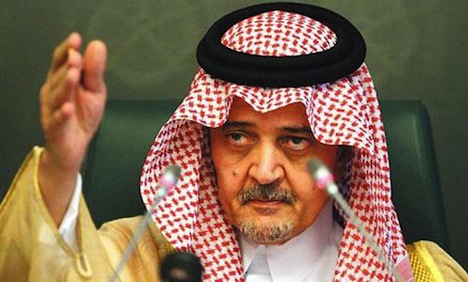On Friday, just one day after it was awarded a non-permanent, two-year seat on the United Nations Security Council, Saudi Arabia abruptly announced to the world that it was rejecting the seat, much to the bafflement and diplomatic dismay of the rest of the world.![]()

It’s unprecedented for a country to make a years-long effort to win a non-permanent seat, only to turn around a day later to renounce the seat.
The Saudis denounced the Security Council’s inability to act in the Middle East and called for reform:
The manner, the mechanisms of action and double standards existing in the Security Council prevent it from performing its duties and assuming its responsibilities toward preserving international peace and security as required,” the Saudi Foreign Ministry said in a statement. “Allowing the ruling regime in Syria to kill its people and burn them with chemical weapons in front of the entire world and without any deterrent or punishment is clear proof and evidence of the U.N. Security Council’s inability to perform its duties and shoulder its responsibilities.”
Security Council reform is long overdue, but it’s hard to see the Saudis becoming the poster child for political reform in Turtle Bay.
So what gives?
Commentators pointed to several immediate reasons. The Saudis are angry that US president Barack Obama failed to hold steady in his threat to use military force against Syria. The Saudis are upset that the United States recently cut off military aid to Egypt’s new, undemocratic government. The Saudis are worried that the recent steps toward better relations with Iran could mean that the United States places less importance its longtime strategic relationship with Saudi Arabia.
But none of those really give us a full explanation — the Syria showdown was two months ago, and the Saudis would have more influence on the process to rid Syria of chemical weapons from within the Security Council than outside it. Furthermore, they could use their vote on the Security Council for the next two years as leverage to curry favor with the United States. And in the ‘P5 + 1’ talks with Iran, Saudi Arabia would certainly have a more central role if it were sitting on the Security Council while Iran struck a deal with the international community.
Eric Voeten, writing at The Monkey Cage, now at home at The Washington Post, argues that Saudi Arabia’s approach to diplomacy has long been a backdoor, behind-the-scenes affair, and that doesn’t fit well with the high profile of sitting on the Security Council: Continue reading Why Saudi Arabia gave up its non-permanent Security Council seat
